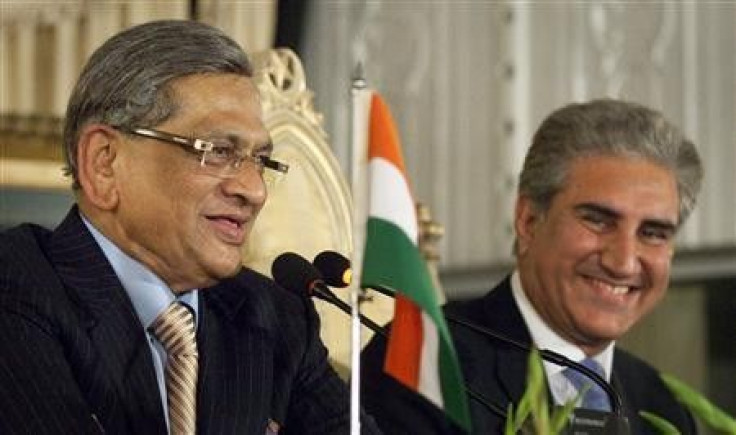India and Pakistan say peace talks to resume

India and Pakistan said on Thursday they would resume formal peace talks but issues such as militancy and the disputed Kashmir region are likely to slow any progress towards defusing tensions.
The talks, expected to start by July, would be the first since New Delhi broke off peace negotiations after militant attacks on Mumbai in 2008.
The nuclear-armed neighbours have been under pressure from the United States to resolve a rivalry that spills over into Afghanistan, complicating peace efforts there.
Pakistani Prime Minister Yusuf Raza Gilani welcomed the important decision taken both by Pakistan and India to resume (a) full spectrum of dialogue.
In a statement, Gilani said the talks were the result of his negotiations with Indian Prime Minister Manmohan Singh.
If talks do resume there is probably little chance of rapid progress between the two countries, which have fought each other three times since their independence more than 60 years ago.
Previous formal talks, which started in 2004, quickly floundered amid a minefield of political obstacles and distrust.
I am cautiously optimistic about the talks. Cautious because there are so many variables and unknowns involved, said Amitabh Mattoo, professor of International Relations at Jawaharlal Nehru University.
A senior Indian government official said the decision to return to talks was made at a meeting between the two countries' top diplomats in Bhutan's capital, Thimphu, on the sidelines of a regional conference.
The two governments will hold a series of talks on counter-terrorism and Kashmir ahead of a visit to India by Pakistan's foreign minister by July, the countries' foreign ministries said.
New Delhi suspended the peace process between the two sides after the commando-style militant attacks in India's commercial capital Mumbai, blaming Pakistan-based militants for the deaths of 166 people.
Since then officials from the two nations have met to improve ties but have shied away from resuming the so-called composite dialogue that included resolving key differences, including a dispute over the Himalayan territory of Kashmir.
I think the Indians have realised that their policy (of not having formal talks) was not paying any dividends, said former Pakistani army general and analyst Talat Masood.
I think there is also some sort of foreign pressure, the American pressure that it's much better in the interest of Afghanistan that they improve their relationship.
IMPACT OF TALKS MAY BE MUTED
Financial markets tend not to react to such diplomatic twists and turns, but a second attack like Mumbai could trigger a retaliation by India, a move that would almost certainly hit investor confidence in Asia's third-largest economy.
India's prime minister Singh has made efforts to entice Pakistan to peace talks, concerned about the legacy of his second term government.
But such moves have little impact on voters at home who are more concerned about inflation and corruption, and India these days looks more towards competing with China on economic and security issues than its traditional rival Pakistan.
Tentative discussions between India and Pakistan do not have a record of success.
India has consistently demanded that Pakistan act against militant groups on its soil. Islamabad, which is fighting an Islamist insurgency of its own, says it is doing all it can and demands New Delhi provide evidence to back its accusations.
Along with Kashmir, the foes have engaged in a proxy battle for influence in Afghanistan, complicating Western efforts to end the 10-year war there.
Pakistan considers Afghanistan a part of its sphere of influence and claims a role in any effort to seek a settlement with the Taliban.
India, which supported the anti-Taliban Northern Alliance during the civil war, fears a return of the Taliban would embolden militant groups acting against it.
© Copyright Thomson Reuters 2024. All rights reserved.











